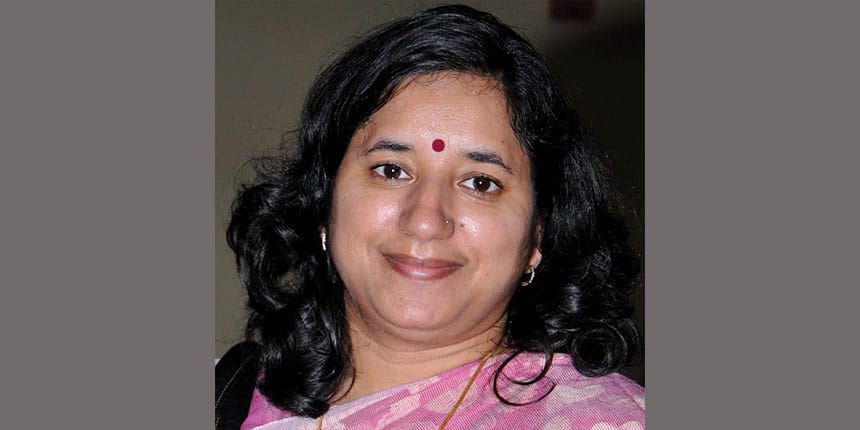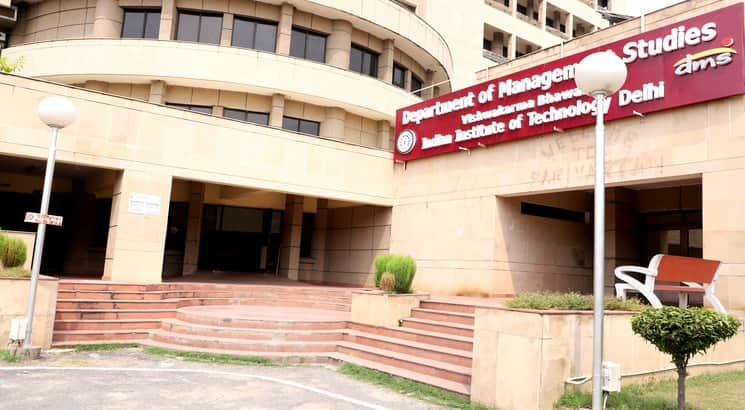How IIT Delhi surged ahead in management education
Pritha Roy Choudhury | November 25, 2021 | 03:11 PM IST | 3 mins read
MBA Education: IIT Delhi broke into the top five NIRF ranks for management, ahead of several IIMs. Its head of the department explained how.
IITs- A Comprehensive Guide
A complete guide to IITs: Learn about the admission process, required cutoffs, fees, top branches, campus details, and updated placement statistics—all in one place.
Download Now
New Delhi: The Department of Management Studies, Indian Institute of Technology Delhi, broke into the top five ranks of management institutions in the National Institutional Ranking Framework or NIRF 2021. Last year, it was at eight. Seema Sharma, head of the department, spoke to Careers 360 about the rise in the rankings and upcoming initiatives.
Must See: IITs Comprehensive Guide
Q. What initiatives helped IIT Delhi, a technical institution, climb the ranks in management education?
A. We knew that we have to work hard to improve our ranking. We improved on gender diversity. We had more girl students. We worked on the curriculum part also. Apart from the academic delivery – which is classroom teaching – we worked out intensive exercises with the corporations so that our students are useful to the business world from day-one. The business world would often complain about this, generally for all B-Schools, that unless the students are given good training, they are not of much use. So, we worked on that. We improved the teacher-student ratio as we hired more faculty members. And, of course, research. You might observe that we are the highest as far as the research output is concerned. All these measures helped us to raise our position. And I think there is a parameter that is based on the perception of the institute. There has been improvement in that as well.
Also Read: IIT Vs IIM: How the IITs are outpacing IIMs in NIRF rankings
Q. What did you do to improve gender diversity?
A. Whenever we get an opportunity to talk to women candidates, we talk about all the benefits that a candidate will get from the IIT, whether it is entrepreneurial or from the ecosystem, or the curriculum, which is both research-based and intensely connected to the industry. It is just that we put in some extra effort.
Q. What was your experience with placements during Covid?
A. We have always had 100 percent placement. A lot of extra effort was required in this. The entire department worked together, talked to the companies to come for the placement. Initially, students were asked to join online. They were given a VPN number so that they can have access to the intranet of the companies and can start their work and as soon as they were able to, they joined offline.
 Department of Management Studies, IIT Delhi
Department of Management Studies, IIT Delhi
Q. Do students get any exposure to actual global practices?
A. We have a Global Field Study (GFS) programme through which we send our students to foreign countries. Connecting with industries abroad gives them a good idea of the international work culture and good exposure to the technologies that are in use in other countries. GFS has been suspended now because of the corona situation. As soon as the normal
life resumes, we will again start sending students.
Also Read: How B-schools became centres of public policy training
Q. What are your plans for the future?
A. We do have plans to start one separate online programme or a blended one-year programme for working executives. Whenever we offer this program, it would be for students of the entire world. It may be blended or it may be online only, the discussions are still on.
What we are planning is that from next semester we will go offline. The number of cases in Delhi has been low for a while, so we will go offline. For us, the usual mode is offline and we want to return to it. We do not have a blended mode of teaching yet.
Follow us for the latest education news on colleges and universities, admission, courses, exams, research, education policies, study abroad and more..
To get in touch, write to us at news@careers360.com.